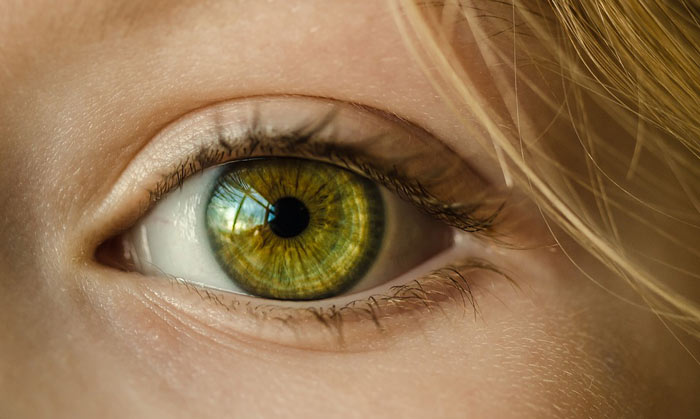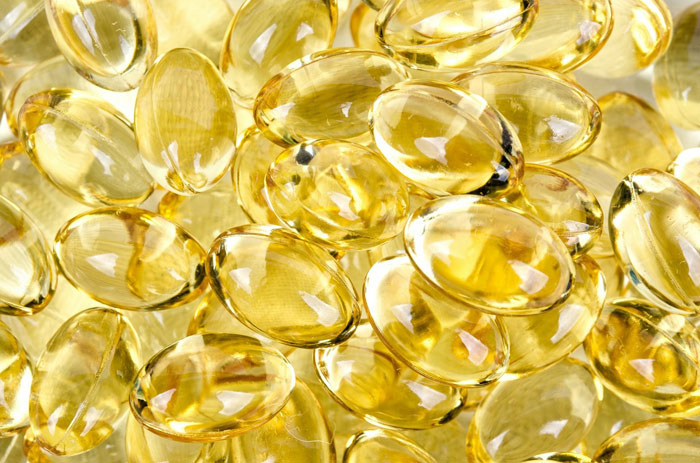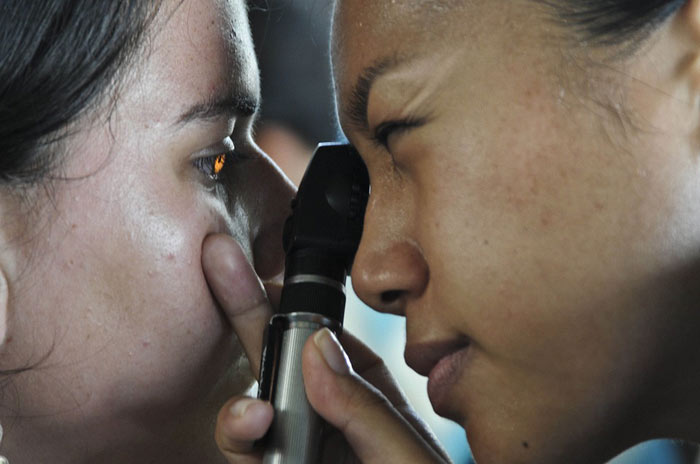When it comes to looking after your health and well-being, there are some aspects that many people tend to give more attention to than others. For example, when it comes to preserving your health, it’s important to do everything that you can to keep your optical health in good condition. Without your sense of sight, the way in which you experience the world would be drastically altered. Vision is a very complex process, most of which takes part in the brain. However, there are several things that you can do to improve your eyesight and lower your chances of having to wear optical aids such as glasses or contact lenses in the future. But should you need contact lenses, there is plenty of choices to suit you. We’ve put together some top tips to help you start improving your eyesight today.

Tip #1. Regular Eye Check-Ups
Just like your dental and overall physical health, it’s important to go for regular check-ups to see where you are at with your optical health. Ideally, you should have your eyesight tested at least once every two years, although some optometrists may recommend that you have yours checked more frequently depending on a number of underlying factors, such as pre-existing health conditions that could cause your eyesight to deteriorate faster. Speak to your optician about vision correction and other treatments that you might want to consider to improve the condition of your eyes and eyesight – more information is available at Goodeyes.com.
Tip #2. Relax Your Eyes
Just like the rest of your body, your eyes can get tired and strained after doing too much, which can, in turn, have an effect on your sight quality over time. There are several different eye relaxation exercises that you can try; all of which are quite simple but able to yield some great results. For example, simply warming your hands up before placing them over your eyes will help to relax them. Using hot and cold compresses can also help to prevent any eye swelling and reduce tension and inflammation.
Tip #3. Exercise Regularly
 Regular exercise isn’t just good for keeping your body in shape and avoiding piling on extra pounds; it has also been shown to be useful for looking after your eyesight, too. Aim to take part in some light to moderate cardiovascular exercise at least four times on a weekly basis, such as walking, jogging, cycling, or swimming. It has been found that regular exercise can help reduce the intraocular pressure of people with glaucoma, along with helping you to reduce your risk of developing this condition in the first place.
Regular exercise isn’t just good for keeping your body in shape and avoiding piling on extra pounds; it has also been shown to be useful for looking after your eyesight, too. Aim to take part in some light to moderate cardiovascular exercise at least four times on a weekly basis, such as walking, jogging, cycling, or swimming. It has been found that regular exercise can help reduce the intraocular pressure of people with glaucoma, along with helping you to reduce your risk of developing this condition in the first place.
Tip #4. Sleep Well
Whilst some people are able to function well on little sleep at all, most of us will need an average of around 6-8 hours of shut-eye for optimal health and well-being. If you are not getting enough sleep, then this will not only affect your overall mental and physical health; it can also start to hurt your eyes and wreak havoc with your vision. After not getting enough sleep, you may notice that your vision is blurred or weaker than usual, and it may be painful to keep your eyes open for a long time. Sleep allows your tired eye muscles to finally relax and regenerate, so avoiding the temptation to stay up late can help you achieve the perfect vision for longer.
Tip #5. Protect Your Eyes from the Sun
During the warmer weather, it’s not just your skin that’s at risk of damage from the sun’s harmful UV rays – your eyes can also be susceptible to harm. Although some limited exposure to sunlight can actually be beneficial for your eyes, it’s important to know where the fine line is drawn, as exposing them too much and too often can cause significant damage over time. When the sun is beating down, protect your eyes by always wearing a high-quality pair of sunglasses that provide UV protection.
Tip #6. Get More Vitamin A
 When it comes to looking after your eyesight, it’s just as important to consider what goes into your body as it is to think about what you’re putting on the outside. Eye problems such as night blindness and more tend to be caused by a deficiency in Vitamin A; therefore, getting more of this vitamin can help you to improve your vision overall. Some great sources of Vitamin A that you can add to your diet today include carrots, sweet potatoes, spinach, kale, eggs, mango, peas, broccoli and many more fruits and vegetables.
When it comes to looking after your eyesight, it’s just as important to consider what goes into your body as it is to think about what you’re putting on the outside. Eye problems such as night blindness and more tend to be caused by a deficiency in Vitamin A; therefore, getting more of this vitamin can help you to improve your vision overall. Some great sources of Vitamin A that you can add to your diet today include carrots, sweet potatoes, spinach, kale, eggs, mango, peas, broccoli and many more fruits and vegetables.
Tip #7. Take Regular Breaks
Whether you are in school or full-time work, concentrating for too long on the same thing can quickly start to put the strain on your eyes and cause them to work harder, affecting your vision quality over time. If you work at a desk and tend to be using a computer most of the day, it’s vital to be aware of the effect that this can have on your eyes, and what to do to minimize the damage. Taking short, regular breaks throughout the day wherever possible will enable your eyes to rest and give them a chance to heal themselves from any small amounts of damage that have occurred. Ideally, a ten-minute break every hour should be taken.
Tip #8. Be Computer-Savvy
 Even if you’re not the world’s biggest tech whizz, there are many ways in which you can be savvy using your computer when it comes to your eyes. Sitting in front of a computer screen for hours at a time is one of the worst things for your eyes, therefore, if you are somebody who needs to work mainly on a computer or laptop, there are some main things to bear in mind. Firstly, try to keep the brightness level of the monitor or screen as low as comfortably possible, to keep your eyes in a relaxed state. Secondly, make sure that your computer screen is positioned correctly – just below eye level is just right for avoiding strain.
Even if you’re not the world’s biggest tech whizz, there are many ways in which you can be savvy using your computer when it comes to your eyes. Sitting in front of a computer screen for hours at a time is one of the worst things for your eyes, therefore, if you are somebody who needs to work mainly on a computer or laptop, there are some main things to bear in mind. Firstly, try to keep the brightness level of the monitor or screen as low as comfortably possible, to keep your eyes in a relaxed state. Secondly, make sure that your computer screen is positioned correctly – just below eye level is just right for avoiding strain.
Tip #9. Use Good Quality Eye Make-Up
If you use eye makeup and other makeup products to enhance your looks, then it’s important to be aware of the effect that this can have on your eyes. It’s important to use high-quality eye makeup products since cosmetics are a top repository for bacteria, which can be unknowingly transferred to your eyes, leading to multiple potential problems. Along with choosing high-quality brands, it’s also important to make sure that you always remove your eye makeup at the end of the day to prevent small particles making their way into your eyes and causing damage to them.
Tip #10. Stay Hydrated
 When it comes to looking after your health, ensuring that you drink enough water throughout the day is one of the easiest ways to make improvements. Staying hydrated can help your digestive system, your skin, hair, and nails, your mental health, and even aid with weight loss amongst many further benefits. In addition, making sure that you drink at least two liters of water each day can also contribute to better eye health. Swap soda, alcohol and coffee for more water and soon you will literally be able to see the difference.
When it comes to looking after your health, ensuring that you drink enough water throughout the day is one of the easiest ways to make improvements. Staying hydrated can help your digestive system, your skin, hair, and nails, your mental health, and even aid with weight loss amongst many further benefits. In addition, making sure that you drink at least two liters of water each day can also contribute to better eye health. Swap soda, alcohol and coffee for more water and soon you will literally be able to see the difference.
If you enjoyed these tips on eye care, we’d love to hear from you in the comments.










